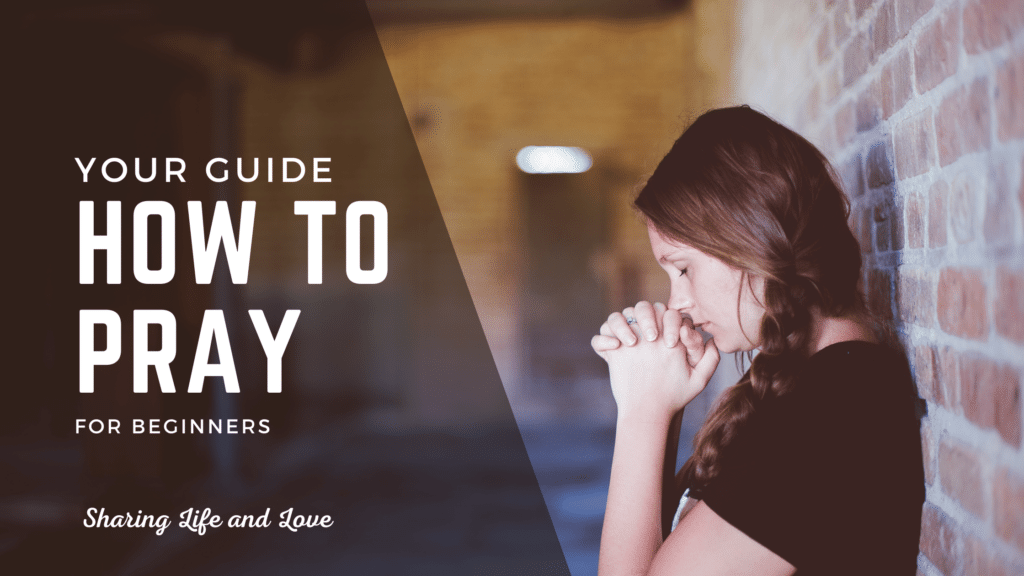Have you always wanted to know how to do a topical Bible study? Do you wonder what a topical Bible study is? Perhaps you want to know the benefits of doing a topical Bible study and how to do your first one. This article answers all questions about how to do a topical Bible study.
When you approach your topical Bible study, be sure to speak to God about what you are doing. Prayer is a powerful tool and will let you know if you are on the right track. If you are familiar with Scripture, you might even have the Holy Spirit reveal Bible verses you know to you!
This article will also give you tips and tricks, and ideas for what to do with your topical Bible study once you have it completed. Follow the 7 easy steps mentioned in this article or adapt them to work for your spiritual growth. Let’s get started!
This post may contain affiliate links. Please read our Privacy Policy for more information.
What is a Topical Bible Study?
With a topical Bible study, you choose a subject or topic that you are interested in studying. Then, you find the verses that relate to that subject or topic. If you want to learn about wisdom, you will likely find yourself in Proverbs quite a bit, as it is the Book of Wisdom!
If you want to learn about a topic like love, you would be smart to define what type of love you are interested in exploring. For example, God’s love (agape) is defined in Romans 8:38-39 and 1 Corinthians 13. You’ll want to know what type of love you are talking about before diving in.
In Greek, there are at least 4 different words for love mentioned in the Bible! One word is for God’s love, but another word tells the reader that the author was speaking of purely sexual love. Since there is a difference, you’ll want to be specific when choosing your topic or subject.
The structure of a topical Bible study depends on your preferences. If you want to make a list of all of the Bible verses that relate to a topic, you can do that with the help of a concordance. Be sure to check out the listed reference books and Bibles in the article on building a Bible library.
For I am convinced that neither death nor life, neither angels nor demons,[a] neither the present nor the future, nor any powers, neither height nor depth nor anything else in all creation, will be able to separate us from the love of God that is in Christ Jesus our Lord. – Romans 8:28-29
Why Do a Topical Bible Study?
There are many reasons to learn how to do a topical Bible study. When a problem comes up, consider doing a topical Bible study on it! If someone has already written a Bible study on your “topic” or problem, you might see if they are credible and then do theirs.
If you struggle with having a daily quiet time for God, check out our Psalms Bible Study, which conquers any fears or issues you have in this area to help you thrive in your faith.

If you’d like to create your own topical Bible study, it is advisable that you use a concordance and find all related verses to your topic. If you would like to learn more about the types of grace, you can search for “grace” in the concordance to find all verses that speak on that topic.
Another great reason to do a topical Bible study is the benefit it can provide to someone else. If your child or spouse is struggling in some way, perhaps learning more from the Bible will help you give them wise counsel. Maybe you have friends struggling in one area or another.
Make sure to look at things from an outside perspective. How does this topic affect those around me? How can I use this topical Bible study to minister to those I love or non-believers who need to meet Jesus for the first time? Gear it toward your audience’s needs.
As iron sharpens iron, so one person sharpens another. – Proverbs 27:17
The Difference Between a Topical Bible Study and a Bible Word Study
A Bible word study is another unique type of Bible study that you can easily do on your own. With a word study, you will want to find out what the word that you are interested in means in the original language. The Old Testament was translated from Hebrew; the New is from Greek.
Once you’ve done that, you can find out more about its definition and related Bible verses.
With a topical Bible study, you are finding out where in the Bible it speaks of certain subjects. This might not even mean that you are looking for the same word in every case. If you are interested in gratitude, you would want to also dive into the words “thankful” and “thanks.”
A topical Bible study is on a subject or topic. With a Bible word study, you are paying close attention to a specific word. Keep in mind that many translations vary the word choice. Because of this, with any Bible study, look at word-for-word Bible translations (ESV, NASB, KJV, etc.).
The point is not to explain which Bible translation is right but to show you that some are more closely related to the original language than others. You can certainly use an NIV or NLT version for your studying or reading with no issues.
All Scripture is God-breathed and is useful for teaching, rebuking, correcting, and training in righteousness. – 2 Timothy 3:17
How to Do a Topical Bible Study
Here are some steps that you can follow to learn exactly how to do a topical Bible study. Tailor each step to work for you, and remember to do each item prayerfully! If you are new to Bible studies, check out What is a Bible Study? Another useful article is Why Study the Bible?
#1. Pick a topic for your topical Bible study.
You might want to know how to pick a topic for your Bible study because it can be tricky. Maybe you have been brainstorming and just do not know where to start. Think about any hurts and troubles you or someone you love are experiencing. Consider using that subject!
If you are going through a tough period, you might want to do some research on encouraging or motivating Bible verses. As you read several of them, you might find one that you are particularly fond of and want to know more about.
That is a great start for your topical Bible study!
Maybe you are just a creative and curious person. Many people have those qualities, but many do not! Use your uniqueness to brainstorm a topic that you just want to know more about. It can be weird or abstract, too! The Bible might not use the same words, but it covers it all!
If you are teaching, writing, or leading a topical Bible study, consider what problems or concerns the group or audience is dealing with. Maybe your audience has experienced loss or a difficult situation. If so, the Psalms might be the right choice. The Psalmist David lost a child.
A Psalms Bible study might be a bit challenging if you do not know much about the book, so you might consider looking up the topic of loss or something that would encourage the people you are ministering to. Be sure to put their interests and needs into consideration!
A cord of three strands is not quickly broken. – Ecclesiastes 4:12
#2. Define the word or topic that you have chosen to study.
It is always smart to define the word or words that you are interested in with a Bible Dictionary. That way, you will know the meaning as it pertains to the Bible. Often, we think of a word in a specific way, but the author intended it to be used in another way.

Because of this, we need to know the “intent” of the author if we are looking at a specific passage in the Bible. If you study the context of the word, verse, paragraph, or book, you will be able to determine pretty well what the author meant when he used that word in the Bible.
Context brings the big picture into play!
#3. Look for related words and synonyms for your topic.
If you are researching and want to do a topical Bible study on the topic of gratitude, you’ll discover when you look up the meaning of the word that it can also be used as a term meaning thanksgiving. Therefore, you’ll want to use thankful, thank, and thanks when researching.
Often, you can find related words using a dictionary or another Bible study tool. In the article How to Do a Bible Word Study, we cover many FREE applications, resources, and tools that you can use to dive into a Bible word more deeply.
This will help you in the next step, too! Keep going!
Never give up when doing a topical Bible study!
#4. Find relevant Bible verses for your topic.
One way to find relevant Bible verses is to use one of the tools mentioned in the last section. Blue Letter Bible and Bible Hub are two websites that offer this feature. I go into detail on this subject in the article entitled How to Do a Bible Word Study.
Another great resource is a Bible concordance. Many study Bibles have this feature in the back of the Bible. If that is unavailable and the FREE resources listed above are insufficient, or you want to dive even deeper, consider using Strong’s Bible Concordance.
A concordance will list the topic and all of the Bible verses that relate to that topic. Now would be a great time to look up the synonyms you researched in the step mentioned above. If you looked up gratitude in the Bible concordance, don’t forget to look up thanksgiving, too!
A Bible concordance can be a true gem when doing a topical Bible study!
#5. Ask and answer insightful questions about your topic.
There are so many questions you can ask when doing a topical Bible study! Determine the who, what, when, why, where, and how of the matter. Ask every question that comes to mind. No one is grading you! Let your mind soar as you search for questions that may come to your audience.
If you are short on questions, try getting very analytical. Think about what a researcher or a critical friend might ask if they were to approach the subject or topic that you are studying. You might even check online for frequently asked questions about that specific topic.
Next, you’ll want to do diligent research to determine the answers to the questions that you just asked. Do not get overwhelmed by this. In my intense Bible study process, I spend a very long time on this very step. Take your time exploring the answers as found in the Bible.
If one particular question really stumps you, come back to it later or ask a wise scholar or pastor for their opinion. Not everything in the Bible is simple to understand. It does take a lifetime of learning to be able to answer questions that a person could pose, studying God’s Word.
In the beginning, was the Word, and the Word was with God, and the Word was God. – John 1:1
#6. Organize everything for your topical Bible study.
It’s now time to put it all together. You might wish to make a list of everything you have learned so far. Another idea is to do Bible note-taking or Bible journaling. When you do those things, you do not have to be creative. You can purchase a journaling Bible and write in the margins!

Another idea is to start a Bible study journal. It can just be a notebook, but you could include all the findings you’ve discovered in doing your topical Bible study. If you especially love writing in your Bible, consider an interleaved Bible, which will give you more room to write!
With an interleaved Bible, you see that every other page of the Bible is blank. This gives you a chance to add notes to your Bible or write on those blank pages. Both of the above-recommended Bibles are ones that I do own and highly recommend!
Make me understand the way of Your precepts, and I will meditate on Your wondrous works. – Psalm 119:27
#7. Apply what you’ve learned from your topical Bible study.
This step goes hand in hand with the last one. If you only study the facts of the Bible and do not apply them to your life, you will likely not get much out of your topical Bible study. It’s a very important part of any Bible study – application!
So, what does it mean to apply the Bible to your life? It means that you need to figure out how the Scripture applies to you. For example, you might read Psalm 84 as part of your topical Bible study, and you decide that the key takeaway or the way to apply it is to analyze it a bit further.
In Psalm 84, we see a way to find strength in the Lord and grow into stronger Christians. The passage also shows us how God strengthens us. In my notes on this Psalm, I summarized the application as doing what is right and trusting God in all things.
If you are struggling with your relationship with God, consider checking out our Psalms Bible Study (a free version is available on this website under Online Bible Study) or the series we wrote on How to Have a Strong Relationship with God!
Draw near to God, and He will draw near to you. – James 4:8
What to Do with Your Topical Bible Study
There are many options on what to do with your topical Bible study. You can share your findings with your family or church. The other option is to write your findings in your Bible for reference. You might also want to keep a journal or notebook with all of your Bible study insights.
You could publish your topical Bible study and sell it online. If you wish to keep it for yourself, you could create your own Bible concordance. Just make a list of topics and list the definitions, questions, answers, Bible verses (also known as cross-reference verses), and takeaways!
Learn the Word of God! You’ll never regret spending time with our Creator!
Tips and Ideas for Your First Topical Bible Study
Always pray before your first topical Bible study or before any Bible study. Ask God for wisdom to better understand the Bible. He will provide what He wants you to know. Praying is a crucial part of the Christian life. Consider making a prayer binder or prayer notebook!
One simple thing that you could do for a topical Bible study is to use a topical Bible like Nave’s Topical Bible! When looking up related verses, try the Thompson Chain-Reference Bible.
Another option is to read Christian books from your favorite retailer or author on the topic you wish to know more about. If you want to learn your spouse’s love language and how to grow closer to him or her, consider buying the book called The 5 Love Languages.
For more recommended reference books, read How to Build a Bible Library. Start small. Maybe purchase a decent journaling Bible or a study Bible that has a concordance built in. You can always write in your Bible’s concordance what you learned from your topical Bible study!
Get creative and do what works for you and helps you learn best. We often do not know much about a topic until we experience it. If you are going through any hurt, habit, or hangup, I always recommend Celebrate Recovery, but a topical study is a great start for your struggle!
Cast your cares on Him because He cares for you! – 1 Peter 5:7
Conclusion
Wow! That was a lot of information. Are you still with me? We covered the 7 steps you might want to follow so that you can learn how to do a topical Bible study on your own. Of course, tailor the steps to make them work in your favor.
It’s always smart to figure out how you enjoy studying and try different methods. The SOAP Bible study method is very popular. The SWORD Bible study method is a bit different but can also be simplistic. Each of those articles has a free printable in the Shop to enjoy!

For more free Bible studies and methods to use, see the Bible Study category of this website.
If you enjoyed this article on how to do a topical Bible study, please share it on social media or with your family and friends! Leave a comment if you know of anything else to include in this article for future readers! I am excited to share this great Bible study method with you!
Let us know in the comments what topic you picked for your first topical Bible study!



